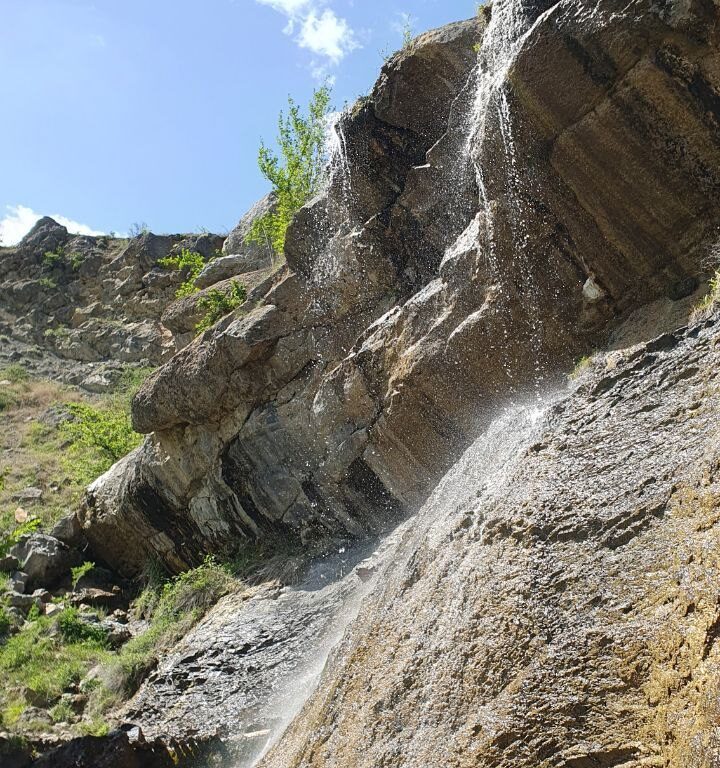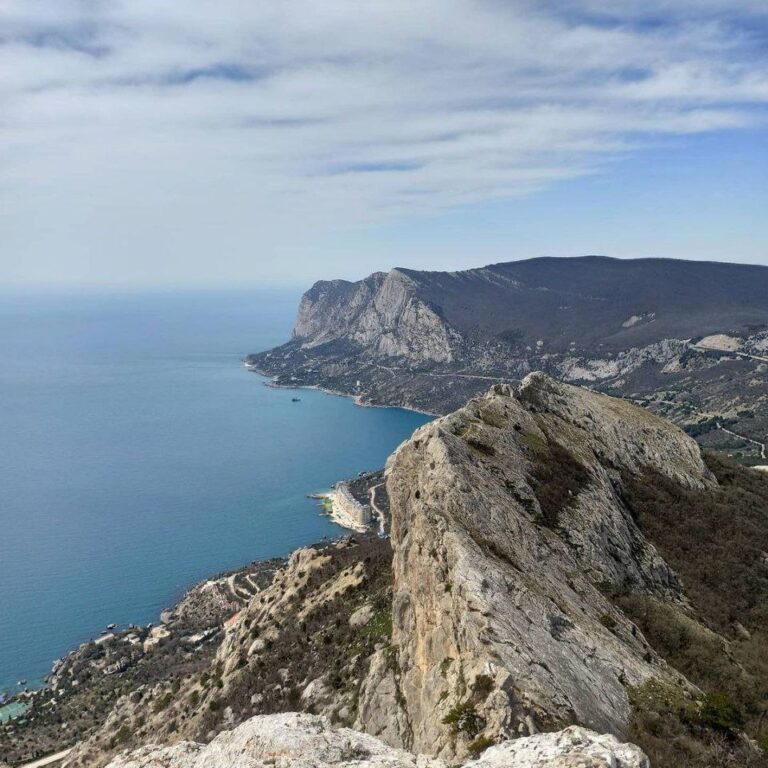The current conditions of criminal Russian aggression as an interstate conflict unprecedented in the history of the world, which began with the occupation of the Crimea and is accompanied by the aggressor’s numerous war crimes, by the total denial by the aggressor of the very institution of human rights and the general principles of international law of civilized nations, necessitate a qualified assessment, and often a reassessment existing forms of legal and organizational support for victims of aggression, in particular to increase their effectiveness.
Approval in January 2022 of the Law of Ukraine “On Social and Legal Protection of Persons Deprived of Personal Freedom as a Result of Armed Aggression Against Ukraine, and Members of Their Families”, the subsequent large-scale aggression of the Kremlin and, accordingly, the implementation of new organizational and legal forms of protection of persons deprived of personal freedom as a result of armed aggression in a situation of unprecedented challenges formed the current situation, which Associate Professor Tetyana Linnyk tried to understand on the basis of her proven systematic research [1].
A systematic approach to the assessment of the aspects of protection of persons deprived of personal freedom as a result of the armed aggression of the Russian Federation against Ukraine has not yet been reflected in the scientific analysis. The transformation of the very approaches in terms of the processes of protection of persons, deprived of personal freedom as a result of the armed aggression of the Russian Federation against Ukraine directly follows from the need to counter large-scale Russian aggression, and at the same time, the relevant aspects have not yet received the proper doctrinal dimension in scientific activity.
At the same time, one should not ignore the formation and development of new government institutions over the past two years, the formation of a system of resolutions of international organizations and decisions of international courts regarding the victims of the occupation, and the corresponding consistent activity of a number of human rights associations.
As it was written earlier [2], the development of Ukrainian legislation on temporarily occupied territories during the first years of occupation was primarily reactive in nature, and the corresponding approaches of the lawmaker, although they had certain features of programming, did not differ in a constant sequence [3].
For a long time, the issue of payments to Kremlin prisoners was regulated in Ukraine exclusively at the sub-legal level, in addition, a number of government documents related to specific groups of released hostages or prisoners. As an example, such a governmental regulatory document should be considered the Procedure for paying one-time monetary assistance to persons who were illegally deprived of personal freedom as a result of the actions of illegal armed formations and/or authorities of the Russian Federation in certain territories of the Donetsk and Luhansk regions, where the state authorities temporarily do not exercise their powers, and the temporarily occupied territory of Ukraine, released on December 27, 2017 and January 24, 2018, approved by Resolution No. 38 of the Cabinet of Ministers of Ukraine (hereinafter CMU) dated January 31, 2018 [4].
The Procedure for paying one-time cash assistance to persons who were illegally detained as a result of an act of armed aggression by the Russian Federation that took place on November 25, 2018 in the area of the Kerch Strait, approved by the Resolution of the CMU of December 5, 2018 No. 1066 [5], and the Procedure for the payment of one-time monetary assistance to persons, who were illegally deprived of their personal freedom as a result of the actions of illegal armed formations, the occupation administration and/or authorities of the Russian Federation in the temporarily occupied territories in the Donetsk and Luhansk regions, the temporarily occupied territory of Ukraine and/or the territory of the Russian Federation, released on September 7, 2019, approved by the Resolution of the CMU dated September 11, 2019 No. 845 [6].
However, the Ukrainian authorities made attempts to streamline the relevant activities to help persons imprisoned for supporting Ukraine or deprived of their freedom as hostages to influence Ukraine. Such governmental acts became the Procedure for the use of funds provided for in the state budget for the implementation of measures to protect and ensure the rights and freedoms of persons deprived of their personal freedom by illegal armed formations, the occupation administration and/or authorities of the Russian Federation for political reasons, as well as in connection with the public, political or professional activities of such persons, support for the specified persons and their family members, measures for the reintegration of the population of temporarily occupied territories, the payment of state scholarships named after Levko Lukyanenko, approved by the Resolution of the CMU of April 18, 2018 No. 328 [7] and the Procedure for social and legal protection of persons deprived of their liberty as a result of the armed aggression of the Russian Federation against Ukraine, after their release, approved by the Resolution of the CMU of December 11, 2019 No. 1122 [8].
According to the specified documents, appropriate payments and other forms of support were made by the Ukrainian authorities; at the same time, the imperfection of the specified legal mechanisms, which consisted primarily in the absence of a specific law of Ukraine, led to the emergence of a number of legal disputes.
In this context, it is worth citing the court decisions in case 420/7376/20 on the lawsuit of the Ukrainian Independent Maritime Trade Union to the Interdepartmental Commission for consideration of issues related to the recognition of persons who were deprived of their freedom as a result of armed aggression against Ukraine, to the Ministry of Veterans Affairs of Ukraine, to the Ministry of Reintegration of the Temporarily Occupied Territories of Ukraine, where the third party was the Central Directorate of the Security Service of Ukraine (hereinafter SSU) [9]; [10].
The mentioned court case, among other things, noted the issue of legal succession of a number of central executive bodies regarding the implementation of relevant resolutions of the CMU, which was connected with the transformation of the Ministry for Reintegration of the Temporarily Occupied Territories of Ukraine and its temporary merger with the Ministry of Veterans Affairs of Ukraine.
In addition, case 420/7376/20 raised questions about the powers of the Central Directorate of the SSU to maintain lists of hostages and released persons, both in relation to the occupied Crimea and the occupied regions of mainland Ukraine at the time. Moreover, the case raised the question of the responsibility of the central executive authorities for the activities of the mentioned Interdepartmental Commission, the meetings of which they were supposed to ensure.
In addition to the norms of the Procedure for the implementation of social and legal protection of persons deprived of their liberty as a result of armed aggression against Ukraine, approved by the above-mentioned Resolution of the CMU of December 11, 2019 No. 1122, in the specified court case, the departmental order of July 17 was considered and approved for the implementation of clause 6 of this Procedure No. 57 of 2020, which established the aforementioned Interdepartmental Commission and approved its Regulations [11].
In case 420/7376/20, the trade union as the plaintiff stated that the defendants, whose competence includes issues of temporarily occupied territories and the protection of the rights of persons in these territories, the protection of the rights of victims of aggression and occupation, as well as the SSU as a third party, have no did not deny the main facts of the case of the abduction of fishermen from the waters of the Ukrainian sea by the Russian occupying “administration” during their legitimate labor activities and the subsequent forced detention of these fishermen in places of deprivation of liberty in the Crimea, together with Russia’s political demands for their release.
Therefore, it was stated in the lawsuit, the fishermen were given the right to apply to the Interdepartmental Commission so that their cases would be considered by this authorized commission, so that this authorized body would determine whether they are hostages, released persons, persons deprived of their freedom as a result of armed aggression against Ukraine; the defendant added that any other body in Ukraine can neither recognize the specified status for the fishermen, nor take measures to provide them with compensatory measures, in particular material ones.
The court in case 420/7376/20 established that the SSU created and kept a record of persons illegally deprived of their liberty, captured and held by illegal armed formations in the area of implementation of measures to ensure national security and defense, repulse and deter armed aggression of Russia in Donetsk and Luhansk regions, in accordance with the Regulation on the Joint Center for the Coordination of the Search, Release of Illegally Deprived Persons in the Area of Implementation of Measures for Ensuring National Security and Defense, Repelling and Deterring Armed Aggression of Russia in the Donetsk and Luhansk regions, approved by the order of the SSU, the Ministry of Defense of Ukraine, the Ministry of Internal Affairs of Ukraine dated April 8, 2019 No. 573/152/252 [9].
On the other hand, the court stated, keeping records of persons deprived of their liberty in the occupied Crimea was not provided for by the aforementioned Regulation, but the court determined in this regard that the lack of possibility to be included in this record by the SSU bodies, based on territorial determination, cannot deprive a person of his right to review the question of recognition of a person who was deprived of liberty as a result of armed aggression against Ukraine on the basis of submitted documents by the interdepartmental commission.
At the same time, the court stated, that the definition of a person who was deprived of his freedom as a result of armed aggression against Ukraine on the basis of the submitted documents belongs to the discretionary powers of the Interdepartmental Commission, and at the same time the court determined that the correct form of satisfaction of violated rights is the obligation of the relevant ministry, and not the said Interdepartmental Commission to reconsider the fishermen’s applications.
The court did not take into account the plaintiff’s arguments that the illegal inaction of not considering the fishermen’s applications directly concerns not only the ministry, but also the Interdepartmental Commission, because in these disputed legal relations, the Ministry “did not consider the appeal together with the documents attached to it at the meeting of the Interdepartmental Commission”.
In this case 420/7376/20, there is also the conclusion of the Ukraine’s Supreme Court that the lack of evidence of the transfer by the relevant Ministry of “the plaintiff’s letters and the fishermen’s statements attached to them for consideration by the Interdepartmental Commission, indicates the groundlessness of the claims for the recognition of illegal inaction of the Interdepartmental Commission regarding their consideration and the obligation to consider them”.
The Supreme Court confirmed the correctness of the conclusion about the prematurity of such demands, since “the fishermen’s applications were not submitted for consideration by the Interdepartmental Commission, which in turn excludes the possibility of the commission violating the rights, freedoms and interests of the plaintiff and the fishermen”, “since its powers include the consideration of questions about which were discussed in the letters and statements” of the fishermen.
In addition, the Supreme Court expressed its position regarding the procedure for clarifying and establishing the factual circumstances of the arrest and detention of fishermen, the illegal deprivation of personal freedom of fishermen, and the fact that fishermen are hostages within the meaning of Article 4 of Order No. 1122 and released within the meaning of Article 12 of Order No. 1122 and others, as well as regarding the issue of violation of human dignity and arbitrary restriction of other basic rights of fishermen during the deprivation of their freedom in the occupied Crimea. In this regard, the Supreme Court stated that “since the verification of the circumstances specified by the plaintiff and the establishment of the facts must take place directly during the consideration of the fishermen’s applications by the Interdepartmental Commission, the court cannot usurp the powers of the body whose powers include such duties” [9].
A new stage in the definition of organizational and legal forms of protection of persons deprived of personal freedom as a result of armed aggression began after the approval of the Law of Ukraine “On social and legal protection of persons deprived of personal freedom as a result of armed aggression against Ukraine and their family members” from January 26, 2022 No. 2010-IX (hereinafter Law No. 2010) [12]. It is noteworthy that this document was approved literally a month before the large-scale Russian aggression, and at the same time, Law No. 2010 had the obvious purpose of removing the previous shortcomings of the legal provision of assistance to the Kremlin prisoners, primarily in terms of establishing appropriate mechanisms at the legal, not by-law level, in the format expansion and classification of categories of persons in need of assistance, clearer and more comprehensive regulation of the activities of the relevant Commission as a subject of authority.
Law No. 2010 covers two main categories of persons, these are prisoners of war (clause 1, part 1, article 2 of the Law) and civilians deprived of their freedom (clause 2, part 1, article 2 of the Law), while only for the latter two separate, alternative conditions for recognizing them as in need of help are either their active activity in defense of Ukraine, which became a prerequisite for repression, or their use by the aggressor to put forward demands “to take action or refrain from taking action as a condition for the release of a citizen of Ukraine”, i.e. as hostages. At the same time, civilians, deprived of their freedom, unlike prisoners of war, must be exclusively citizens of Ukraine for their recognition in accordance with Law No. 2010.
Also, Law No. 2010 covers family members of Ukrainian citizens who have been deprived of personal liberty as a result of armed aggression against Ukraine and indicates that the relevant categories of persons do not include citizens who were convicted of international crimes, crimes against of the state and for other criminal offenses committed in conditions of armed conflict or related to armed aggression against Ukraine.
In Art. 3 of Law No. 2010 establishes that the adoption of relevant decisions about the specified persons is carried out by the Commission on Deprivation of Personal Liberty as a Result of Armed Aggression against Ukraine (hereinafter Commission), which is formed under the central body of executive power, which ensures the formation and implementation of state policy with issues of temporarily occupied territories of Ukraine; now this body is the Ministry of Reintegration of the Temporarily Occupied Territories of Ukraine (Ministry of Reintegration).
The law provides for the need for the government to approve the Regulation on the Commission and establishes requirements for its personnel, which must include representatives of the seven central executive bodies, as well as of the President of Ukraine, of the Commissioner of the Verkhovna Rada of Ukraine for Human Rights, of the Office of the Prosecutor General, of the SSU and the Foreign Intelligence Service of Ukraine and from the Representation of the President of Ukraine in Crimea. In addition, the Commission should include “representatives from public associations, including international ones, that carry out activities in the field of human rights protection and take care of persons deprived of personal freedom as a result of armed aggression against Ukraine, document the facts and crimes of armed aggression against Ukraine , carry out search activities”, but no more than five people.
In accordance with Law No. 2010, the Commission is formed with a chairman, deputy chairman, secretary and other members, and its personnel is approved by an order of the Ministry of Reintegration; the commission is empowered, provided that its personal composition is appointed in the amount of not less than two-thirds of its members.
At the same time, the tasks of the Commission under Law No. 2010 include not only consideration of relevant “statements and materials” from individuals and decision-making on establishing the fact of deprivation of personal freedom, but also analysis of the practice of applying legislation on issues of social and legal protection of relevant individuals.
Law No. 2010 also requires that the decisions adopted by the Commission on establishing the fact of deprivation of personal liberty as a result of armed aggression against Ukraine be entered into the Unified Register of persons in respect of whom the fact of deprivation of personal liberty as a result of armed aggression against Ukraine has been established. In addition, Law No. 2010 carefully establishes the grounds for establishing the fact of deprivation of a person’s personal freedom as a result of armed aggression against Ukraine and defines requirements for relevant documents for various categories of persons.
At the same time, it is established that during the consideration of applications, the Commission takes into account the information and data provided by the applicant or its representative, documents from Ukrainian authorities, as well as “decisions on relevant issues of an international judicial institution whose jurisdiction is recognized by Ukraine” and “other information provided or made public by international, human rights and other organizations”; if necessary, the Commission may listen to explanations of applicants, their representatives or witnesses.
Law No. 2010 also establishes that when making a decision to establish the fact of deprivation of a person’s personal freedom as a result of armed aggression against Ukraine, the Commission sets the date of the beginning of the period of deprivation of a person’s personal freedom, and in the case of a person’s release from a place of imprisonment, the date of his release.
Law No. 2010 provides that the decision of the Commission on non-confirmation of the fact of deprivation of a person’s personal freedom as a result of armed aggression against Ukraine or refusal to recognize as a family member a person in respect of whom the fact of deprivation of personal freedom as a result of armed aggression against Ukraine has been established may be appealed in court. and that refusal to accept or consider the application is prohibited. Thus, it can be stated that Law No. 2010 contains an attempt to solve the problem due to which the previous practice of refusing to accept or consider applications became the subject of legal disputes.
In addition, Article 5 of Law No. 2010 defines the Unified Register of Persons Deprived of Personal Freedom as a result of armed aggression against Ukraine as a single state information and communication system designed for registration, storage, protection, processing, and use of information about persons, in relation to who have been deprived of their personal freedom as a result of armed aggression against Ukraine, family members of such persons and entrusts the Ministry of Reintegration with the duty to maintain this Register. The administrator of this register is the National Information Bureau, which belongs to the sphere of administration of the Ministry of Reintegration [12].
In addition, in accordance with Art. 6 of Law No. 2010, the Ministry of Reintegration is entrusted with the organization of the work of the Commission, the reception of applications and documents, the organization of sending requests for obtaining, checking or clarifying information necessary for the Commission to make decisions.
The provisions of Law No. 2010 were developed in the Resolution of the CMU dated November 15, 2022 No. 1281 [13], which approved the Regulation on the Commission and the Procedure for the appointment and payment of assistance to persons who have been deprived of their personal freedom as a result of armed aggression against Ukraine, and members their families. It should be noted that the relevant provision almost completely reproduces the norms of Law No. 2010 and contains few additions. Among such novelties is an indication of the meeting as an organizational form of the work of the Commission, that the meetings of the Commission are convened when necessary, but not less than once a quarter, and that the decision of the Commission is formalized in a protocol, which is signed by the chairman, deputy chairman, secretary and all members Commissions that participated in the meeting.
For the development of the relevant provisions of Law No. 2010, mentioned in the Order and Regulations, the order of the Ministry of Reintegration dated December 1, 2022 No. 281 [14] approved the form of a statement on the establishment of the fact of deprivation of a person’s personal freedom as a result of armed aggression against Ukraine; the application form for recognition as a family member of a person who has been deprived of personal freedom as a result of armed aggression against Ukraine; the application form for the provision of funds for the reimbursement of expenses for professional legal assistance and the application form for receiving state monetary assistance. At the same time, which follows from this order, ensuring the implementation of Law No. 2010, the mentioned Procedures and Regulations, and the work of the Commission in the Ministry of Reintegration is entrusted to the Department for the Protection of the Rights of Citizens Victims of Armed Aggression and to the Deputy Minister, the Commissioner for Internally Displaced Persons.
The format of the Commission’s activities for a year and a half after its approval allows us to speak about its effectiveness. Among other things, as reported by the Ministry of Reintegration in November 2023, at that time 8 meetings of the Commission were held, according to their results, the fact of deprivation of liberty was established for 4,337 people, 3,574 military and 763 civilians, while in 2023 alone, 422 million hryvnias were paid to those released from captivity, as well as families of prisoners of war, civilian hostages and political prisoners [15].
Thus, we should come to the general conclusion that the adoption of the Law of Ukraine “On Social and Legal Protection of Persons Deprived of Personal Freedom as a Result of Armed Aggression Against Ukraine, and Members of Their Families” removed the previous shortcomings of the legal provision of assistance to Kremlin prisoners, primarily in in terms of establishing appropriate models of regulation at the legal, not sub-legal level, in the format of expanding and classifying the categories of persons in need of assistance, clearer and more comprehensive regulation of the activities of the relevant Commission as a subject of authority.
In accordance with the current organizational and legal model for the protection of persons deprived of their personal freedom as a result of armed aggression, the Commission acquires exclusive managerial subjectivity in the relevant legal relations, and therefore the standards of the European Convention and the European Court of Human Rights regarding the activities of quasi-judicial bodies become valid for it.
In addition, compliance by the Commission and other authorities with the entire complex of norms and procedures of the Geneva Conventions and other relevant norms of international law remains extremely important; the main challenges of the relevant activity should be considered the balance of confidentiality and transparency in the procedure of protection of persons deprived of personal freedom as a result of armed aggression. The above should become the basis for new research.
Sources
1. http://www.lsej.org.ua/index.php/arkhiv-nomeriv
2. http://apnl.dnu.in.ua/1_2023/22.pdf
3. https://arcrimea.org/uk/analytics_ua/2023/04/20/uryadovyj-plan-reintegracziyi-krymu-mizhnarodnyj-vymir/
4. https://zakon.rada.gov.ua/laws/show/38-2018-п
5. https://zakon.rada.gov.ua/laws/show/1066-2018-п
6. https://zakon.rada.gov.ua/laws/show/845-2019-п
7. https://zakon.rada.gov.ua/laws/show/z1576-22
8. https://zakon.rada.gov.ua/laws/show/1122-2019-п
9. https://reyestr.court.gov.ua/Review/117974383
10. https://reyestr.court.gov.ua/Review/100652684
11. https://zakon.rada.gov.ua/laws/show/z0779-20#Text
12. https://zakon.rada.gov.ua/laws/show/2010-20
13. https://zakon.rada.gov.ua/laws/show/1281-2022-п
14. https://zakon.rada.gov.ua/laws/show/328-2018-п








